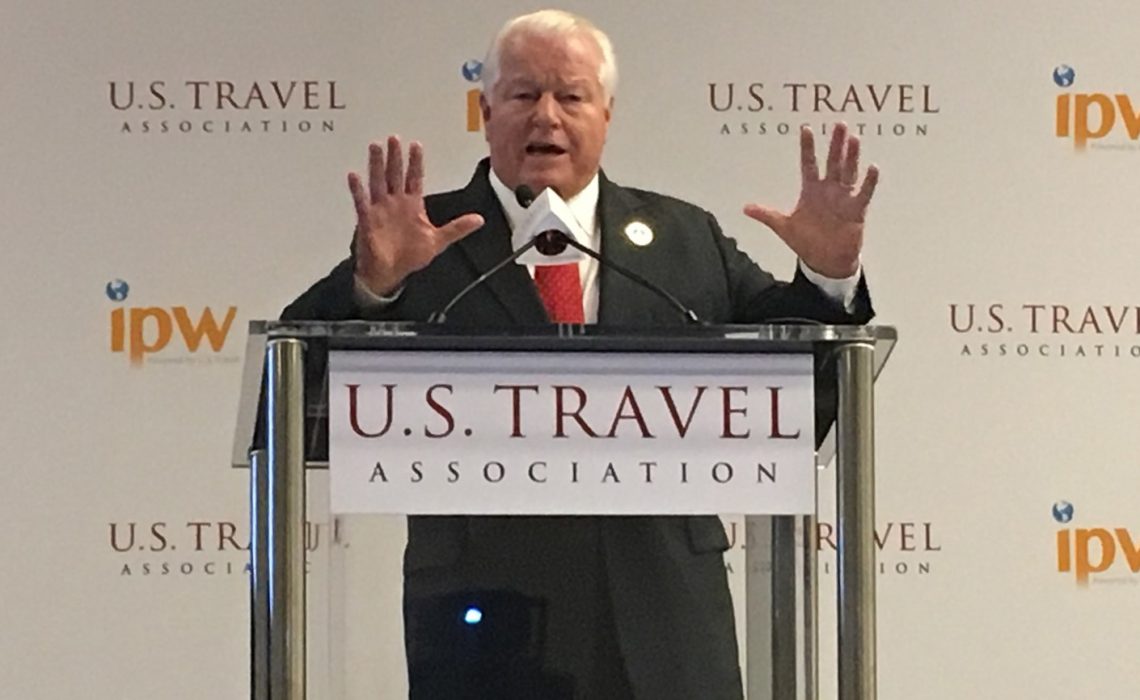
You might also like:
WASHINGTON — The U.S. Travel Association’s latest inbound travel numbers indicate that there may not be a “Trump slump” for international travel, even as some key markets are predicted to soften.
International travel grew year over year by about 4% in April, according to U.S. Travel’s Travel Trends Index (TTI).
April was considered an important indicator as to whether President Trump’s controversial travel ban orders in January and March would impact the inbound travel market, because the average international visitor embarks on a trip to the U.S. 56.9 days after their initial travel search, U.S. Travel said.
“Are we surprised by this data? The honest answer is yes,” said U.S. Travel CEO Roger Dow, speaking at the group’s IPW event here. “There have been many claims that the administration’s actions on travel have tarnished America’s brand abroad, but we’re seeing hard economic evidence of the U.S. travel sector’s remarkable resilience.”
U.S. Travel data indicates that for the rest of 2017, inbound travel is expected to climb from several areas of the world, such as Asia and Latin America, by 4% and 2% respectively.
Even Canada, a market badly impeded by the strong US dollar, is predicted to increase 3%.
The “bad news,” Dow said, is that travel overall this year could drop by .1%, and two of the U.S.’s top markets are predicted to soften: Mexico by 4% and the U.K. by 6.1%. Europe as a whole is expected to soften by 3.6%.
“We should not take it for granted that this trend will sustain, and the 15.3 million American jobs that depend on travel are not worth putting at risk,” Dow said. “A simple and clear welcome message will go a long way in that regard.”
Dow said that U.S. Travel will continue to urge the administration to more publicly send a welcoming message to the world.
“Our message is simple: The administration must be loud and clear that America is closed to terror and open for business,” Dow said. “They must make it clear not only in word but in deed. Bad actors are not welcome, but everyone else is.”
Dow reminded delegates and journalists from around the world that the U.S. travel industry faced a similar situation after the terrorist attacks of 9/11 in 2001, when many of the nation’s policies and messages meant to protect U.S. citizens sent “the wrong messages” about travel, including that the U.S. didn’t want international visitors.
“It took us a long time to get back from 9/11 — it took us years,” he said. “And we’re not going to let that happen again. We’re going to be out there very fast to work on changing that perception.”
Sоurсе: travelweekly.com



